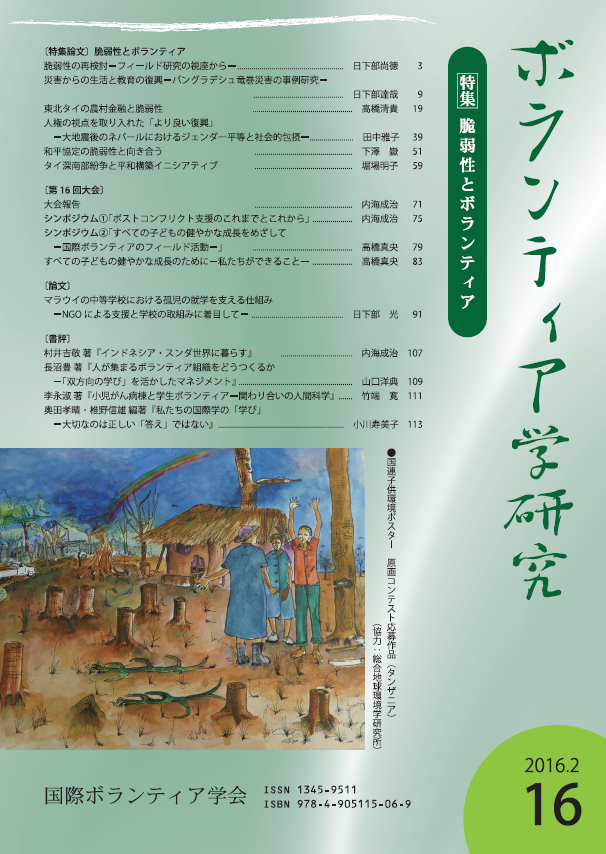Volume 15
Displaying 1-17 of 17 articles from this issue
- |<
- <
- 1
- >
- >|
-
2015 Volume 15 Pages 3-4
Published: February 24, 2015
Released on J-STAGE: March 31, 2024
Download PDF (475K) -
2015 Volume 15 Pages 5-15
Published: February 24, 2015
Released on J-STAGE: March 31, 2024
Download PDF (652K) -
2015 Volume 15 Pages 17-26
Published: February 24, 2015
Released on J-STAGE: March 31, 2024
Download PDF (586K) -
2015 Volume 15 Pages 27-35
Published: February 24, 2015
Released on J-STAGE: March 31, 2024
Download PDF (511K) -
2015 Volume 15 Pages 37-51
Published: February 24, 2015
Released on J-STAGE: March 31, 2024
Download PDF (794K) -
2015 Volume 15 Pages 55-56
Published: February 24, 2015
Released on J-STAGE: March 31, 2024
Download PDF (547K) -
2015 Volume 15 Pages 57-60
Published: February 24, 2015
Released on J-STAGE: March 31, 2024
Download PDF (535K) -
2015 Volume 15 Pages 61-66
Published: February 24, 2015
Released on J-STAGE: March 31, 2024
Download PDF (543K) -
2015 Volume 15 Pages 67-83
Published: February 24, 2015
Released on J-STAGE: March 31, 2024
Download PDF (588K) -
2015 Volume 15 Pages 87-97
Published: February 24, 2015
Released on J-STAGE: March 31, 2024
Download PDF (734K) -
2015 Volume 15 Pages 99-109
Published: February 24, 2015
Released on J-STAGE: March 31, 2024
Download PDF (672K) -
2015 Volume 15 Pages 113-125
Published: February 24, 2015
Released on J-STAGE: March 31, 2024
Download PDF (708K) -
2015 Volume 15 Pages 127-139
Published: February 24, 2015
Released on J-STAGE: March 31, 2024
Download PDF (619K) -
2015 Volume 15 Pages 143-153
Published: February 24, 2015
Released on J-STAGE: March 31, 2024
Download PDF (803K) -
2015 Volume 15 Pages 157-158
Published: February 24, 2015
Released on J-STAGE: March 31, 2024
Download PDF (520K) -
2015 Volume 15 Pages 159-160
Published: February 24, 2015
Released on J-STAGE: March 31, 2024
Download PDF (486K) -
2015 Volume 15 Pages 161-162
Published: February 24, 2015
Released on J-STAGE: March 31, 2024
Download PDF (495K)
- |<
- <
- 1
- >
- >|
